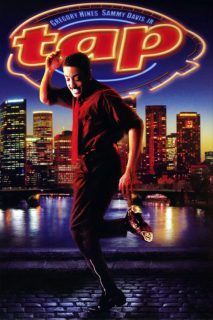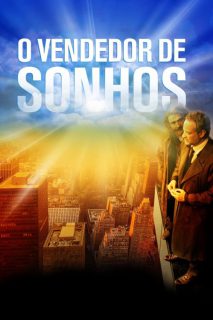
- Year: 1967
- Released: 26 Mar 1968
- Country: Japan
- Adwords: 1 win & 2 nominations
- IMDb: https://www.imdb.com/title/tt0062041/
- Rotten Tomatoes: https://www.rottentomatoes.com/m/japans_longest_day
- Available in: 720p, 1080p,
- Language: Japanese
- Genre: Drama, History, War
- Runtime: 157 min
- Writer: Shinobu Hashimoto, Soichi Oya
- Director: Kihachi Okamoto
- Cast: Seiji Miyaguchi, Rokkô Toura, Chishû Ryû
- Keywords: world war ii, japan, japanese army, japanese surrender, hirohito,
 | 7.7/10 |
 | 77% – Audience |
Japan’s Longest Day Storyline
Following the detonation of the atomic bombs on Hiroshima and Nagasaki, the Japanese military and the government clash over the demand from the Allies for unconditional surrender. Minister of the Army Anami leads the military officers who propose to fight on, even to the death of every Japanese citizen. Emperor Hirohito, however, joins with his ministers in asking the unthinkable, the peaceful surrender of Japan. When the military plots a coup to overthrow the Emperor’s civilian government, Anami must face the choice between his desires and loyalty to his Emperor.
Japan’s Longest Day Play trailer
Japan’s Longest Day Photos



Japan’s Longest Day Torrents Download
| 720p | bluray | 1.41 GB | magnet:?xt=urn:btih:E543BC32F3C39BECE82431F735125BC83C4E1CBB | |
| 1080p | bluray | 2.9 GB | magnet:?xt=urn:btih:5F97687285EE79B2639FA07097904264388D7A84 |
Japan’s Longest Day Subtitles Download
| English | subtitle Japans Longest Day 1967 AnimEigo-DVDRip 23.976fps ENG | |
| Farsi/Persian | subtitle Japans.Longest.Day.1967.DVDRip.Unknown.TINYMZ |
Japan’s Longest Day Movie Reviews
Great attention to detail.
This is an interesting historical piece. It’s the recreation of the last day of Japan before they announced their surrender to Allied forces on 8/15/45. And, it plays like a docudrama–with great attention to detail.
The film is quite unusual in that the title credits for “Nihon No Ichiban Nagai Hi” do not appear until 21 minutes into the film. The time before this all is a condensation of the events in the final weeks of the war–the Potsdam ultimatum, the entry of the Soviet Union into the Pacific war and the use of the two atomic bombs. It is amazing that even after this, many of the more militaristic in the Cabinet wanted to continue fighting! To break this impasse, the Emperor himself decided that enough was enough–surrender must take place on the 15th. The bulk of this film is what occurs in the hours following his decision–when certain elements in the government refused to actually follow the dictates of their Emperor. To them, it was honorable and necessary to continue this futile struggle.
The production is first-rate all around. Several big-name Japanese actors starred in this film–including Chishû Ryû and Toshirô Mifune. Interestingly, the actor who played the Emperor is difficult to ascertain, as you only catch tiny glimpses of him. I think this is because the cinematography was meant as a metaphor for the man–someone few Japanese had even seen and had never appeared in public or on radio to that point.
By the way, while this film is excellent all around and also shows to a modern audience just how militaristic and determined the Japanese were (presenting a good argument for the use of the atomic bombs) , you should be aware that like the failed insurrection, it is very bloody–very. This is not a film for kids or the squeamish.
Superior historical drama
All historical adaptations take a certain artistic license with their source material. JAPAN’S LONGEST DAY is no exception, but for a variety of reasons, this film rises above the norm.
The black and white photography, framed conservatively, has the feeling of reality, as if it were almost documentary. There are distinct emotional highs and lows as Japan’s high command wrestles with the concepts of unconditional surrender (the Potsdam agreement) and the army’s hopes of keeping the war going indefinitely; but the drama seems more real than posed. And despite that the events depicted here really happened, there’s a palpable sense of tension in the narrative.
JAPAN’S LONGEST DAY covers that short period just before the Allied bombings of Hiroshima and Nagasaki to Japan’s surrender in August 1945. But the attention to detail is almost documentary in feel, as bureaucrats and politicos spar with each other to save what they feel is the spirit of Japan. This kind of film doesn’t get much more compelling, and does a superior job at balancing accuracy with drama.
One of the great anti-war movies.
What is a soldier, who has been told from first day of his enlistment that surrender is not only unacceptable but is treason, to do when he learns that his government, including his own military superiors, are going to surrender? This movie pulls no punches in showing what happened when that exact scenario occurred in Japan in the closing days of World War Two. The two words that can best describe how the Japanese soldiers must have felt are betrayal and despair. The movie further underscores the essential hypocrisy of the Japanese imperial leadership and the sudden realization that everything they had been spouting about the Bushido spirit was just hot air, mere hyperbole. As the movie so graphically shows, the junior Japanese officers who revered their generals simply could not accept what seemed to them a shameless repudiation of principles that they were told were sacrosanct. The movie is excellent for several reasons: first, it tells a compelling story; second, it has an all-star cast; third, it is structured as a documentary; fourth, the story is candidly and forthrightly portrayed; fifth, the movie has excellent continuity; sixth, it avoids becoming moralistic; and seventh, it educates the audience about a critical event in history.



